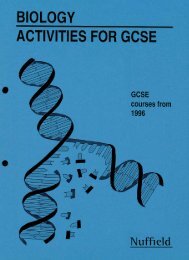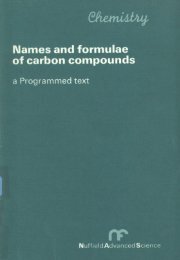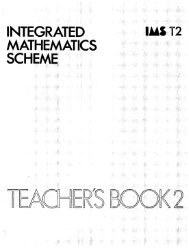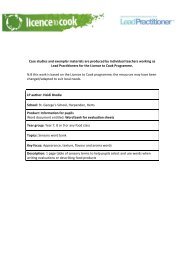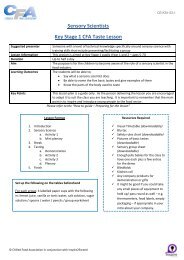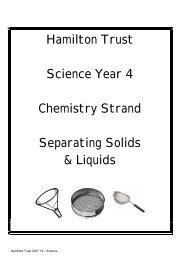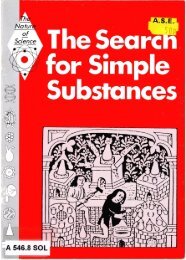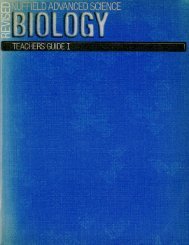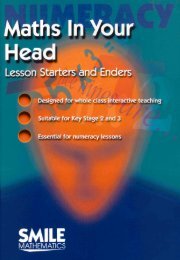history of mathematics - National STEM Centre
history of mathematics - National STEM Centre
history of mathematics - National STEM Centre
You also want an ePaper? Increase the reach of your titles
YUMPU automatically turns print PDFs into web optimized ePapers that Google loves.
Descartes<br />
fiene Descartes (1596-<br />
1650) was a Frenchman.<br />
He lived a few kilometres<br />
south <strong>of</strong> Tours, and also<br />
in Holland and Sweden.<br />
He has been called the<br />
father <strong>of</strong> modern<br />
philosophy.<br />
Chapter 6<br />
The approach<br />
<strong>of</strong> Descartes<br />
Chapter 7<br />
Constructing<br />
algebraic solutions<br />
Chapter 8<br />
An overview <strong>of</strong><br />
Lei Geometrie<br />
Introduction<br />
You can think <strong>of</strong> the algebra <strong>of</strong> the 12th to 16th centuries in Europe as being based<br />
on Latin translations <strong>of</strong> Arabic work, and being broadly algorithmic in nature. It was<br />
not until the 16th century that the Greek mathematical texts became available in<br />
comprehensible Latin.<br />
It was then that the transformation <strong>of</strong> algebra under the influence <strong>of</strong> Greek geometry<br />
begun by the Arabic mathematicians was continued in Europe, first by a French<br />
mathematician, Viete. Another Frenchman Descartes, by discarding some <strong>of</strong> Viete's<br />
ideas and building on others, was able to make the major breakthrough you will<br />
study in this unit.<br />
In Chapter 6 <strong>of</strong> this unit you will learn how Descartes used the introduction <strong>of</strong><br />
algebra to make Greek construction problems considerably easier to solve.<br />
In Chapter 7 you will meet his methods, which show his full genius. Thanks to his<br />
mathematical ideas, an algebraic approach for all geometric problems became<br />
available, and the basis for modern algebraic geometry was laid.<br />
In Chapter 8 Descartes's work is put into perspective.<br />
This unit is designed to take about 15 hours <strong>of</strong> your learning time. About half <strong>of</strong> f*<br />
this time will be outside the classroom.<br />
Work through the chapters in sequence.<br />
Many <strong>of</strong> the activities are in a different style from usual. They ask you to read a<br />
translation <strong>of</strong> Descartes's work, and to answer questions to ensure that you have<br />
understood it.<br />
There are summaries and further practice exercises in Chapter 12. |||<br />
Mathematical knowledge assumed<br />
• the contents <strong>of</strong> Chapter 3 in The Greeks unit is particularly relevant to this unit<br />
• for Activity 6.13, you will need to know some <strong>of</strong> the angle properties <strong>of</strong> circles;<br />
in particular you should know the 'angle at the centre is twice the angle at the<br />
circumference' and 'the angles in the same segments are equal' theorems.<br />
7/



